In this article, we will explore seven effective methods to naturally reduce wrinkles.
Busy? Save this pin for later.
The Main Causes of Wrinkles
Sun Exposure
One of the main causes of wrinkles is excessive sun exposure. The sun emits very harmful ultraviolet (UV) rays that can damage the skin’s collagen and elastin fibers, leading to the breakdown of these proteins.
Over time, this can result in the formation of wrinkles with fine lines. It is crucial to protect your skin from the sun by wearing sunscreen that has a high SPF, seeking shade during peak hours, and wearing protective clothing.
Aging
As we age, our skin naturally undergoes changes that contribute to the formation of wrinkles. The production of collagens and elastin decreases, causing the skin to be thinner and less elastic.
This loss of elasticity makes it easier for wrinkles to develop. As we age, our skin’s ability to retain moisture diminishes, which leads to dryness and further exacerbates the appearance of wrinkles.
Smoking
Smoking is not only detrimental to your overall health but it also plays a significant role in accelerating the aging process and contributing to wrinkle formation. It reduces the blood flow to the skin, depriving it of essential nutrients and oxygen.
It also damages collagen and elastin fibers, which leads to premature aging and deepening of wrinkles. Quitting smoking will help improve your overall skin’s health and reduce the development of new wrinkles.
Listed below are some additional factors that can contribute to wrinkle formation:
- A poor diet that lacks essential nutrients
- Repeated facial expressions and muscle contractions (e.g., squinting or frowning)
- The lack of a proper skincare routine
- Genetics
- Environmental Pollution and toxins
To prevent wrinkles, it is essential to protect your skin from excess sun exposure, adopt a healthy lifestyle, and follow a regular skincare routine which includes moisturizing and nourishing your skin.
You Might Also Like: 8 Skincare Secrets for Youthful and Ageless Beauty
How Aging Contributes to the Formation of Wrinkles
Loss of Collagen and Elastin
Collagen and elastin are proteins that are responsible for maintaining the skin’s structure, elasticity, and firmness. However, as we age, our bodies will produce less collagen and elastin. This decrease will lead to a loss of support for the skin, making it more susceptible to developing wrinkles.
The breakdown of collagen and elastin fibers may also occur naturally over time due to enzymatic activity in the skin. This process is accelerated by factors like sun exposure, smoking, and pollution.
Reduced Skin Cell Renewal
As we age, the rate at which our skin cells regenerate will slow down. Younger skin cells turnover more rapidly, allowing fresh, plump cells to replace older ones. However, with age, this process will become sluggish. The accumulation of dead skin cells on the surface can make wrinkles appear more pronounced.
Dryness and Reduced Hydration
Aging often leads to decreased oil production in the skin glands, which results in drier skin. Dryness exacerbates the appearance of wrinkles as hydrated skin looks smoother and plumper.
Reduced hydration can impair the barrier function of the skin, making it more vulnerable to being damaged by external factors.
To combat these effects of aging on wrinkle formation, it is necessary to maintain a healthy lifestyle that includes proper hydration, a balanced diet rich in antioxidants and essential nutrients, regular exercise to promote blood circulation and oxygenation of the skin, and a consistent skincare routine which focuses on moisturizing and protecting the skin.
7 Effective Methods to Naturally Reduce Wrinkles
1. Protect Your Skin from the Sun
One of the most important long-term strategies for maintaining youthful-looking skin and preventing further wrinkle formation is to protect your skin from the sun’s harmful UV rays.
Exposure to the sun can accelerate the aging process leading to wrinkles, age spots, and other signs of premature aging. Make sure to apply a broad-spectrum sunscreen with an SPF of at least 30 every single day, even on cloudy days.
2. Follow a Healthy Diet
Your diet plays a significant role in maintaining youthful-looking skin. Consuming a balanced diet that is rich in fruits, vegetables, whole grains, lean proteins, and healthy fats can provide your skin with essential nutrients that will promote collagen production and elasticity.
Include foods high in antioxidants like berries, leafy greens, and nuts to combat free radicals that contribute to skin aging. Always stay hydrated by drinking plenty of water throughout the day.
3. Practice Good Skincare Habits
Cleanse your face twice daily using a gentle cleanser that is suitable for your skin type to remove dirt, oil, and impurities.
Exfoliate regularly to slough off dead skin cells and promote cell regeneration. Apply a moisturizer that suits your skin’s needs to keep it well-hydrated and supple.
4. Get Enough Sleep
Adequate sleep is vital for maintaining youthful-looking skin. During sleep, your body will repair and rejuvenate itself, including the skin. Lack of sleep often leads to dullness, dark circles and accelerates aging. Aim for 7-9 hours of quality sleep every night to allow your skin to regenerate and reduce the appearance of wrinkles.
5. Manage Stress
Chronic stress can contribute to premature aging and the formation of wrinkles. Find a healthy way to manage stress, such as practicing relaxation techniques like meditation or yoga exercise, engaging in regular physical activity, or pursuing hobbies that bring you joy. Taking care of your mental well-being will have a positive impact on your overall skin’s health.
6. Avoid Smoking and Limit Alcohol Consumption
Smoking damages collagen and elastin fibers found in the skin, leading to premature wrinkle formation and sagging. Quitting smoking or avoiding it at all can significantly improve your skin’s appearance and prevent further wrinkle formation.
Similarly, excessive alcohol consumption will dehydrate the skin and deprive it of essential nutrients. Limiting your alcohol intake will help maintain youthful-looking skin.
7. Regularly Use Sun Protection Clothing
In addition to applying sunscreen, wearing sun protection clothing can also provide an extra layer of defense against the sun’s harmful UV rays. Look for clothing with a high UPF (Ultraviolet Protection Factor) rating that blocks out a significant amount of UVA and UVB rays.
Wide-brimmed hats, long-sleeved shirts, and pants made from tightly woven fabrics are great choices for protecting your skin from the sun.
Tips:
- Avoiding excessive facial expressions that may contribute to wrinkle formation over time.
- Staying hydrated by drinking plenty of water throughout the day.
- Avoiding harsh soaps and hot water when cleansing your face to prevent drying out of the skin.
- Consider using a humidifier in a dry environment adding moisture to the air and preventing skin dehydration.
- Consult a dermatologist for personalized advice on skincare products and treatments that are suitable for your skin type and concerns.
Understanding how aging will contribute to wrinkle formation, such as the loss of collagen on the skin & elastin and reduced skin cell renewal, can guide you in taking preventive measures.
You Might Also Like: Debunking Common Skin Care Myths With Facts
1. Essential Oils
Essential oils have been used for centuries to improve skin health and reduce the appearance of wrinkles. Some of the popular essential oils for reducing wrinkles include lavender, frankincense, rosehip, and geranium oil.
These oils are rich in antioxidants and have anti-inflammatory properties which can help nourish the skin and promote collagen production in the skin. To use essential oils for wrinkle reduction purposes, mix a few drops with a carrier oil like coconut or jojoba oil and gently massage your face before bed.
Benefits of Using Essential Oils:
- Antioxidant-rich properties help in fighting free radicals responsible for aging.
- Promote collagen production in the skin, improving skin elasticity.
- Reduce inflammation and redness that also causes wrinkles.
- Natural fragrance provides a soothing and aromatherapy experience.
2. Aloe Vera Gel
Aloe vera gel is well known for its healing properties and can also be effective in reducing wrinkles. It contains vitamin C and Vitamin E, which are essential in maintaining healthy skin.
Aloe vera gel often helps hydrate the skin, improve elasticity, and reduce fine lines. To use aloe vera gel as a natural remedy for wrinkles, apply a thin layer on clean skin daily or create a homemade face mask by combining it with other ingredients like honey or cucumber juice.
Benefits of Using Aloe Vera Gel:
- Moisturize skin without clogging pores.
- Rich in vitamins which will promote collagen synthesis.
- Soothes irritated skin and reduces inflammation.
- Improves overall complexion by fading age spots or pigmentation issues.
3. Green Tea
Green tea is popular for reducing wrinkles. It contains antioxidants called catechins, which have anti-aging properties that help protect the skin from damage caused by free radicals.
Drinking green tea regularly may improve skin elasticity and reduce the appearance of wrinkles. Applying cooled green tea bags directly onto the eyes can also help reduce puffiness and dark circles around the eyes.
Benefits of Using Green Tea:
- Antioxidants in green tea often combat signs of aging.
- Reduces inflammation and promotes healthy skin cell rejuvenation.
- Improves overall skin texture and tone.
- It helps minimize under-eye puffiness and dark circles.
4 Antioxidant-rich Foods
Eating foods rich in antioxidants can reduce wrinkles naturally. Antioxidants will protect the skin from free radicals, which are unstable molecules that will damage collagen and elastin fibers, leading to wrinkles.
Some of the antioxidant-rich foods include berries, dark chocolate, green tea, and leafy greens like spinach and kale. These foods are highly packed with vitamins A, C, and E, as well as other beneficial compounds such as polyphenols and flavonoids.
Benefits of Antioxidant-rich Foods:
– Boost collagen production: Antioxidants often stimulate collagen synthesis, which helps maintain the skin’s firmness and elasticity.
– Reduce inflammation: Many antioxidants usually have anti-inflammatory properties that will soothe irritated skin and minimize redness.
– Enhance skin hydration: Certain antioxidants will promote better moisture retention in the skin, reducing dryness and preventing fine lines.
4.1 Omega-3 Fatty Acids
Omega-3 fatty acids play a crucial role in maintaining healthy skin by reducing inflammation and improving overall hydration. These essential fats can be found in fatty fish such as salmon, sardines, and mackerel, as well as chia seeds, flaxseeds, and walnuts. Including omega-3-rich foods in your diet will help combat wrinkles mainly caused by chronic inflammation and keep your skin nourished from within.
Benefits of Omega-3 Fatty Acids:
– Anti-inflammatory effects: Omega-3s prevent the production of inflammatory substances in the body that contribute to wrinkle formation.
– Moisturize the skin: These fats strengthen the skin’s natural barrier function, inhibiting water loss and maintaining optimal hydration levels.
– Protect against sun damage: Consuming omega-3 fatty acids can enhance the skin’s resistance to UV-ray-induced damage, reducing the risk of premature aging of the skin.
4.2 Vitamin C and Collagen-Boosting Foods
Vitamin C is essential for collagen synthesis, a process that will keep the skin firm and supple. Citrus fruits such as oranges, grapefruits, and lemons are excellent sources of vitamin C.
Also consuming collagen-boosting foods like bone broth, soy products, and nuts can provide the amino acids necessary for collagen formation.
Benefits of Vitamin C and Collagen-Boosting Foods:
– Stimulate collagen synthesis: Vitamin C plays a vital role in converting proline into hydroxyproline, an amino acid required for collagen production.
– Improve skin elasticity: Increased collagen levels often result in improved skin elasticity and reduced appearance of wrinkles.
– Protect against oxidative stress: Vitamin C acts as an antioxidant, neutralizing free radicals that contribute to premature wrinkle formation. It is important to note that while these nutritional food choices can support natural wrinkle reduction, maintaining a balanced diet along with a comprehensive skincare routine is key to achieving optimal results.
You Might Also Like: 5 Common Skin Issues And How To Treat Them Naturally
Factors that accelerate the development of wrinkles
1. Sun Exposure
One of the primary lifestyle factors that accelerate the development of wrinkles is excessive exposure to the sun. The harmful ultraviolet (UV) rays from the sun will break down the collagen and elastin fibers found in the skin, which are responsible for its elasticity and firmness. Over time, this will lead to the formation of fine lines, wrinkles, and premature age spots.
To protect your skin from sun damage, it is necessary to wear sunscreen with a high SPF every day, even on cloudy days.
2. Smoking
Smoking is not only detrimental to the overall health of your physical well-being but also contributes significantly to premature aging and wrinkle formation. The toxins present in cigarette smoke will constrict blood vessels in the skin, by reducing its supply of oxygen and nutrients necessary for maintaining its youthful appearance.
Additionally, smoking promotes the breakdown of the collagen and elastin fibers while impairing their production. This results in sagging of the skin, deep wrinkles around the mouth (known as “smoker’s lines”), and a dull complexion of facial appearance.
If you are a smoker looking to reduce wrinkles and maintain healthy skin, quitting smoking is very crucial. Not only will it improve your overall well-being, but it will also slow down the aging process and help prevent further premature wrinkle development.
3. Poor Diet
Your diet plays a significant role in maintaining healthy skin and preventing wrinkles formation. Consuming excessive amounts of processed foods, sugary snacks, and beverages may lead to inflammation within the body. Inflammation also accelerates aging by breaking down collagen and elastin fibers.
focus on foods that are high in antioxidants, such as fruits, vegetables, nuts, and whole grains. These types of foods provide essential vitamins and minerals that support collagen production and protect the skin from damage which are caused by free radicals.
Staying hydrated by drinking plenty of water throughout the day is also crucial for maintaining skin elasticity and preventing dehydration-induced wrinkles.
4. Lack of Sleep
Adequate sleep is mandatory for overall health and well-being, including the condition of your skin. When you don’t get enough sleep, your body will produce excess cortisol, a stress hormone that breaks down collagen. This may result in increased wrinkle formation and a dull complexion.
Furthermore, insufficient sleep will lead to fluid retention around the eyes, causing puffiness and dark circles. To promote healthy skin and reduce wrinkles, aim for 7-9 hours of quality sleep every night. Establishing a relaxing bedtime routine and creating a comfortable sleep environment will help improve your sleep patterns.
5. High Stress Levels
In addition to negatively affecting mental and physical health, chronic stress also accelerates the aging process of the skin. When you’re stressed, your body often releases cortisol and other stress hormones that damage collagen fibers.
To manage stress and reduce its impact on the quality of your skin, consider incorporating stress reduction into your daily life.
These may include practicing mindfulness or meditation, regular exercise or physical activity, seeking support from loved ones, or finding ways to enjoy doing things that make you happy.
You can take steps by addressing lifestyle factors such as sun exposure, smoking, dietary preferences, sleep patterns, and stress levels. It is important to slow down the formation of wrinkles and keep the skin healthy.
You Might Also Like: The Ultimate Guide to Skin Cleansing: What You Need to Know
The Importance of Hydration
Proper hydration is essential for healthy skin. Dehydration affects the proper functioning of the skin. Water helps flush toxins from the body and supports the supply of nutrients to skin cells.
Without adequate hydration, the skin will become dry, dull, and prone to various skin issues such as acne, eczema, and accelerated premature aging.
Effects of Dehydration on Skin Elasticity
One of the main factors affecting moisture is skin elasticity. When the skin is dehydrated, it loses its fullness and firmness. Dehydrated skin looks saggy and less elastic, making it prone to wrinkles.
Loss of elasticity occurs due to the decrease in collagen, which is important for maintaining the structure and strength of the skin.
Hydration as a Preventative Measure
Staying hydrated can help prevent wrinkles by building and maintaining skin elasticity. Drinking enough water every day keeps your skin moisturized from within.
Using a moisturizer that contains hydrating ingredients such as hyaluronic acid or glycerin can increase your skin’s hydration.
It is important to avoid overexposure to environmental factors that can dry out the skin, such as long-term sun exposure or sun exposure. The weather is bad. In general, maintaining proper hydration is important for maintaining skin elasticity and preventing the formation of wrinkles.
Through essential hydration from the inside (drinking enough water) and outside (using skin care products), people can improve the health and appearance of their skin over the long term.
- Proper water can remove toxins from the body.
- Hydration supports the delivery of nutrients to the skin.
- Lack of adequate water can cause dryness, dullness, acne, eczema, and premature aging.
- Dehydration reduces skin elasticity.
- Loss of elasticity due to decreased collagen production.
- Moisturizing helps prevent wrinkles from forming.
- It is good to drink enough water and use a moisturizer that contains moisturizing ingredients.
Effective Home Remedies for Reducing Wrinkles Naturally
1. Aloe Vera Gel
Aloe vera gel is a natural substance that has been used for centuries to treat many skin conditions, including wrinkles. It contains antioxidants and vitamins that help improve skin elasticity and reduce the appearance of fine lines and wrinkles.
To use aloe vera gel to reduce wrinkles, extract the gel from the aloe vera leaf and apply it directly to your face. Leave it for 15-20 minutes and then rinse with warm water. Repeat this process 2-3 times a week for best results.
2. Coconut Oil
Coconut oil is another great home remedy to reduce wrinkles naturally. It is rich in antioxidants and fatty acids that nourish the skin and support collagen production, helping to increase skin elasticity and reduce the appearance of wrinkles.
Use coconut oil to soften the skin, heat a small amount of coconut, pour the oil on your hands and gently massage your face with circular movements.. Leave it overnight and rinse in the morning. You can also mix coconut oil with a few drops of essential oil, such as lavender or rosehip oil, for added benefits.
3. Green Tea
Green tea is not only consumed as a beverage but is also beneficial when used topically on the skin. It is rich in antioxidants that help fight free radicals, prevent sun damage and reduce signs of aging, including wrinkles.
To use green tea to reduce wrinkles, brew a cup of green tea and wait for it to cool completely. Then soak a cotton ball in the tea and gently place it on your face or affected areas.
Wait for it to dry and then rinse with water. For fresh and firm energy, you can freeze green tea in ice water and apply it to your face.
4. Anti-Wrinkle Face Masks
Masks made from natural ingredients help reduce wrinkles by providing intense moisture, nutrition, and rejuvenation to the skin. You can try different recipes for the face using ingredients such as honey, yogurt, avocado, banana or cucumber.
A simple mask recipe is to mix 2 tablespoons of honey with 1 mashed banana. Until you get a smooth paste. Apply this solution to your face and leave it for 20 minutes, then rinse with warm water. Honey will moisturize the skin, while bananas will provide important vitamins and minerals.
Always patch-test a small area of your skin to check for allergies or sensitivities before applying new products or products to your entire face.
The Role of Antioxidants in Preventing and Reducing Wrinkles
What are antioxidants?
Antioxidants are compounds that help protect cells in our body from free radical damage. Free radicals are unstable molecules that cause oxidative stress, causing many health problems, including premature aging and wrinkles. Antioxidants neutralize free radicals and prevent them from damaging our skin cells.
How do antioxidants prevent wrinkles?
Antioxidants play an important role in preventing and reducing wrinkles by preventing the effects of free radicals on the skin. When free radicals attack the collagen and elastin fibers in our skin, they break down essential proteins, causing sagging and wrinkles.
Antioxidants help maintain the integrity of collagen and elastin fibers by blocking the action of free radicals, thus providing smoother, younger-looking skin.
Sources of antioxidants
There are many sources of antioxidants that we can put in our food or skin care to gain anti-wrinkle benefits. Some foods rich in antioxidants include berries (like blueberries, strawberries, and raspberries), leafy greens (like spinach and kale), nuts (like almonds and walnuts), and dark chocolate.
Antioxidant-rich skin care products containing ingredients such as vitamin C, vitamin E, green tea extract or resveratrol can be used to provide a protective plan in cosmetics.
The importance of a balanced diet
Maintaining a healthy diet is important to ensure you’re getting enough antioxidants to achieve overall health benefits, including wrinkle reduction.
Including a variety of fruits, vegetables, whole grains, lean proteins, and healthy fats in your diet not only provides your body with essential nutrients but also contains many of the antioxidants your skin needs for healthy skin.
Remember that a healthy diet combined with proper skin care can go a long way in preventing and reducing wrinkles on your skin.
You Might Also Like: 12 Beauty Hacks: Every Woman Should Know to Glow Up Naturally
Benefits of Regular Exercise for Skin Health
Regular exercise not only helps you maintain your weight and improve your cardiovascular health, but it also provides many benefits for your skin. When you participate in physical activity, your heart rate increases, which improves blood circulation throughout your body, including your skin.
This increases blood flow to provide essential nutrients and oxygen to skin cells, supporting their health and growth. Exercise also stimulates the production of collagen, the protein that gives structure and elasticity to the skin.
As we age, collagen production naturally decreases, causing wrinkles and sagging skin. However regular exercise can help prevent this process by stimulating collagen synthesis, resulting in firmer, younger-looking skin.
Exercise encourages sweating, which helps remove toxins from the body through the pores. By rinsing out impurities regularly, you can protect pores and reduce the occurrence of acne or other skin issues.
Types of Exercises Beneficial for Reducing Wrinkles
Not every exercise has the same effect on weight loss. Some types of exercise are especially beneficial for young skin:
- Facial exercises:
Facial exercises specifically target the facial and neck muscles. These exercises involve making various expressions, such as smiling or pursing your lips while applying resistance with your hands. Regular facial exercise can help tighten and strengthen facial muscles and reduce the appearance of wrinkles.
- Exercise:
Participating in aerobic activities such as running, cycling, or swimming can increase your heart rate and increase blood circulation throughout your body. This blood supply nourishes your skin with oxygen and essential nutrients while eliminating waste products for better results.
- Get stronger:
Strength-intensive activities, such as lifting weights or using resistance bands, can help you build muscle throughout your body, including your face. Strengthening the muscles under the skin can reduce the appearance of wrinkles by making the face look better and tighter.
- Yoga and Pilates:
Yoga and Pilates are low-impact exercises that focus on flexibility, balance and core strength. These exercises usually include various exercises or exercises that stretch and shape the facial muscles, increase blood circulation, and increase skin elasticity.
Incorporating these exercises into your daily exercise routine can help reduce the appearance of wrinkles and improve overall skin health.
Before starting a new exercise, be sure to consult your doctor, especially if you have an underlying condition.
Retinoids
Retinoids are a group of vitamin A derivatives that have been extensively researched and shown to be effective in reducing wrinkles. They work by increasing collagen production, promoting skin renewal, and improving the overall texture of the skin.
Strong tretinoin (such as tretinoin) is very effective but can cause irritation, so it is important to start with a low concentration and gradually increase as tolerated.
Benefits of Retinoids:
- Reduces fine lines and wrinkles
- Improves skin texture and tone
- Fades hyperpigmentation and age spots
- Treats acne and prevents breakouts
Peptides
Peptides are short amino acids that are the building blocks of proteins in the skin. They help stimulate collagen production, increase elasticity, and reduce the appearance of wrinkles. Peptides are found in many skin care products such as creams, lotions, and face washes.
Benefits of Peptides:
- Increases collagen synthesis for firmer skin
- Increases skin elasticity and resilience
- Minimizes the depth and length of wrinkles
- Promote smoother and more youthful skin
Hyaluronic Acid
Hyaluronic acid is a natural substance found in our body that helps retain moisture in the skin, keeping it plump and moist.
As we get older, our natural hyaluronic acid levels decrease, causing dryness and wrinkle formation. Using skin care products containing hyaluronic acid can increase moisture, increase skin elasticity, and reduce the appearance of wrinkles.
Benefits of Hyaluronic Acid:
- Hydrates and moisturizes the skin
- Smoothes fine lines and wrinkles
- Improves skin firmness and elasticity
- Improves overall skin beauty and tone
You Might Also Like: 10 Beauty Routine Tips for a Flawless Skin
The Importance of a Good Skincare Routine in Preventing and Minimizing Wrinkles
The Role of Sun Protection
An important part of any skincare routine that aims to prevent and reduce wrinkles is to provide good sun protection. Exposure to the sun’s harmful UV rays is one of the causes of premature aging and wrinkle formation.
To protect your skin from these harmful rays, it is necessary to use a broad-spectrum sunscreen containing sunscreen. SPF 30 or higher. Apply widely to all parts of the body, including the face, neck, and hands.
Wearing protective clothing such as wide-brimmed hats and long shirts can provide an additional layer of protection against the dangers of the sun.
The Power of Antioxidants
Another important part of a good skincare routine to prevent wrinkles is to use antioxidant-rich products. Antioxidants help neutralize free radicals, which are unstable molecules that can damage collagen fibers and cause wrinkles.
Look for products that contain ingredients such as vitamin C, vitamin E, green tea extract or resveratrol. These powerful antioxidants can help protect your skin from environmental stressors and stimulate collagen production for smoother, younger-looking skin.
The Benefits of Regular Exfoliation
Incorporating regular exfoliation into your skincare routine can play an important role in preventing and reducing wrinkles. Exfoliation helps remove dead skin cells from the surface, allowing new cells to regenerate.
This process promotes cell renewal and stimulates collagen production, which improves skin texture and reduces the appearance of fine lines. Apply a good moisturizer to your skin 1-2 times a week to prevent over-exfoliation, which can cause irritation.
The Importance of Hydration
Proper hydration is important to maintain skin elasticity and plumpness, which helps prevent wrinkles from forming. Remember to drink enough water every day to keep your body and skin hydrated from the inside out.
Using a moisturizer after cleansing and toning in the morning and evening can provide long-term moisturization and help prevent wrinkles.
Lifestyle Factors That Impact Wrinkles
In addition to good skin care, some lifestyle habits can also affect wrinkle formation. It is important not to smoke because it accelerates the aging process and reduces collagen production in the skin.
A healthy diet consisting of proteins and omega-3 fatty acids can provide your skin with essential nutrients, supporting its overall health and function.
Tips for Choosing Skincare Products:
- Read labels carefully to make sure they contain ingredients like antioxidants and moisturizers.
- Consider your skin type (oily, dry, combination) when choosing products based on different formulas according to specific needs.
- Consult a dentist if you have any concerns or conditions, such as sensitive skin or wrinkles.
- Do not use harsh chemicals or perfumes that can irritate your skin.
Your Skincare Routine Matters:
Remember, consistency is key when it comes to preventing and reducing wrinkles. Creating a daily skincare routine that includes the above practices can provide long-term benefits for the health and appearance of your skin.
Prefer antioxidants before sun protection to keep the body regular, moisturize and stay healthy, have a young face and reduce signs of aging.
Understanding the Aging Process
Before we begin researching natural ways to reverse signs of aging and reduce wrinkles, it is important to understand the principles of these changes. As we age, our skin gradually loses its elasticity and collagen production.
This can lead to the formation of fine lines, wrinkles, and sagging skin. Environmental influences such as sun damage and pollution can accelerate the aging process.
The Power of Antioxidants
One of the best ways to prevent aging and reduce wrinkles is to include antioxidants in your skincare routine. Antioxidants help neutralize free radicals, which are unstable molecules that can damage cells and cause premature aging.
Look for products that contain ingredients such as vitamin C, vitamin E, green tea extract, or resveratrol. Antioxidants not only protect your skin from further damage, but they also stimulate collagen production and improve overall skin texture.
Hydration is important
Adequate moisturization is important to maintain youthful skin. When you are dehydrated, your skin becomes dry and prone to wrinkling. Don’t forget to drink plenty of water every day to keep your skin hydrated from the inside out.
Using a moisturizer containing hyaluronic acid can help your skin stay hydrated, and plump and reduce fine lines.
- Eat a diet rich in fruits and vegetables: Eat a variety of colorful fruits and vegetables to provide your body with essential vitamins and essential nutrients to develop healthy skin.
- Avoid too much sun exposure: Protecting your skin from harmful UV rays by applying sunscreen can help prevent photoaging.
- Get enough sleep: Getting enough sleep allows your body to repair damaged cells and have overall healthy skin.
- Reduce Stress: Chronic stress can accelerate the aging process, so finding ways to manage your stress, such as doing yoga or meditation, can be good for your skin.
By incorporating these natural techniques into your daily skincare and lifestyle, you can reverse signs of aging and reduce existing wrinkles.
Remember, patience is key and it may take some time to see visible results. Embracing natural beauty at all ages with a holistic approach to skincare.
Effects of Stress on the Skin
Stress can have a huge impact on the health and appearance of our skin. When we are stressed, our body releases cortisol, also known as the stress hormone. High cortisol levels can cause more inflammation throughout the body, including the skin.
This condition breaks down collagen and elastin, two proteins that help keep skin firm and elastic. Therefore, chronic stress can cause wrinkles and fine lines to form.
The combination of inflammation and bad habits slows down the aging process and causes wrinkles to appear.
The Role of Sleep in Skin Health
Getting enough sleep is very important for keeping your skin healthy. During sleep, our body goes through important processes such as repairing damaged cells and stimulating collagen production.
Collagen is responsible for giving structure and elasticity to the skin and helps prevent the formation of wrinkles. When we don’t get enough sleep, our body produces more cortisol, just like when we’re stressed.
This excess cortisol breaks down collagen and causes the skin to swell, causing signs of premature aging such as wrinkles and dullness. Lack of sleep can affect blood flow to the skin, causing it to become pale and dark.
Tips for Managing Stress and Improving Sleep Quality:
Practice stress reduction techniques such as meditation or deep breathing.
- Do regular physical activity to release endorphins and reduce stress.
- Prioritize personal care that will help you relax and unwind.
- Create bedtime routines to promote better sleep: Avoid screens before bed, keep your bedroom cool and dark, and create a good bedtime routine.
- Consider using relaxation techniques such as aromatherapy or relaxing music in your night routine.
- If you have anxiety or sleep problems, seek help from a doctor or therapist.
Collagen Supplements
What is Collagen?
Collagen is a protein that plays an important role in maintaining the structure and elasticity of the skin. As we age, our body’s natural collagen production decreases, causing wrinkles and sagging skin.
Taking collagen supplements can help increase and stimulate collagen production, thus improving skin health and reducing the appearance of wrinkles.
Benefits of Collagen Supplements
Collagen supplements have many benefits for the skin. First, they increase skin hydration by improving moisture, making your skin smoother and plumper.
This medication has been shown to increase skin elasticity and firmness, reducing the appearance of fine lines and wrinkles. These substances also stimulate the production of proteins such as elastin and fibrillin, which strengthen healthy skin.
Tips for Choosing Collagen Supplements
You need to consider several factors when choosing a collagen supplement. Choose products containing hydrolyzed collagen peptides because they are easily absorbed by the body.
Vitamin C for Skin Health
The Role of Vitamin C in Skin Health
Vitamin C is an important nutrient that plays an important role in skincare. It acts as an antioxidant, protecting the skin from free radical damage caused by the environment, such as pollution and UV radiation.
In addition, vitamin C plays a role in collagen synthesis, which helps heal wounds and rejuvenate the skin.
Benefits of Vitamin C Supplements
Taking vitamin C supplements can provide many benefits to your skin. First of all, it helps reduce the appearance of wrinkles and fine lines by stimulating collagen production.
Vitamin C can brighten skin, even out complexion, and reduce pigmentation or age spots. Additionally, this powerful antioxidant may help protect against sun damage and improve sun protection.
Tips for Choosing Vitamin C Supplements
When choosing vitamin C supplements, choose products containing L-ascorbic acid, the most stable and potent form of vitamin C. To ensure effectiveness, choose supplements with a concentration of at least 10%. It is also important to choose products packaged in opaque containers to avoid damage from light.
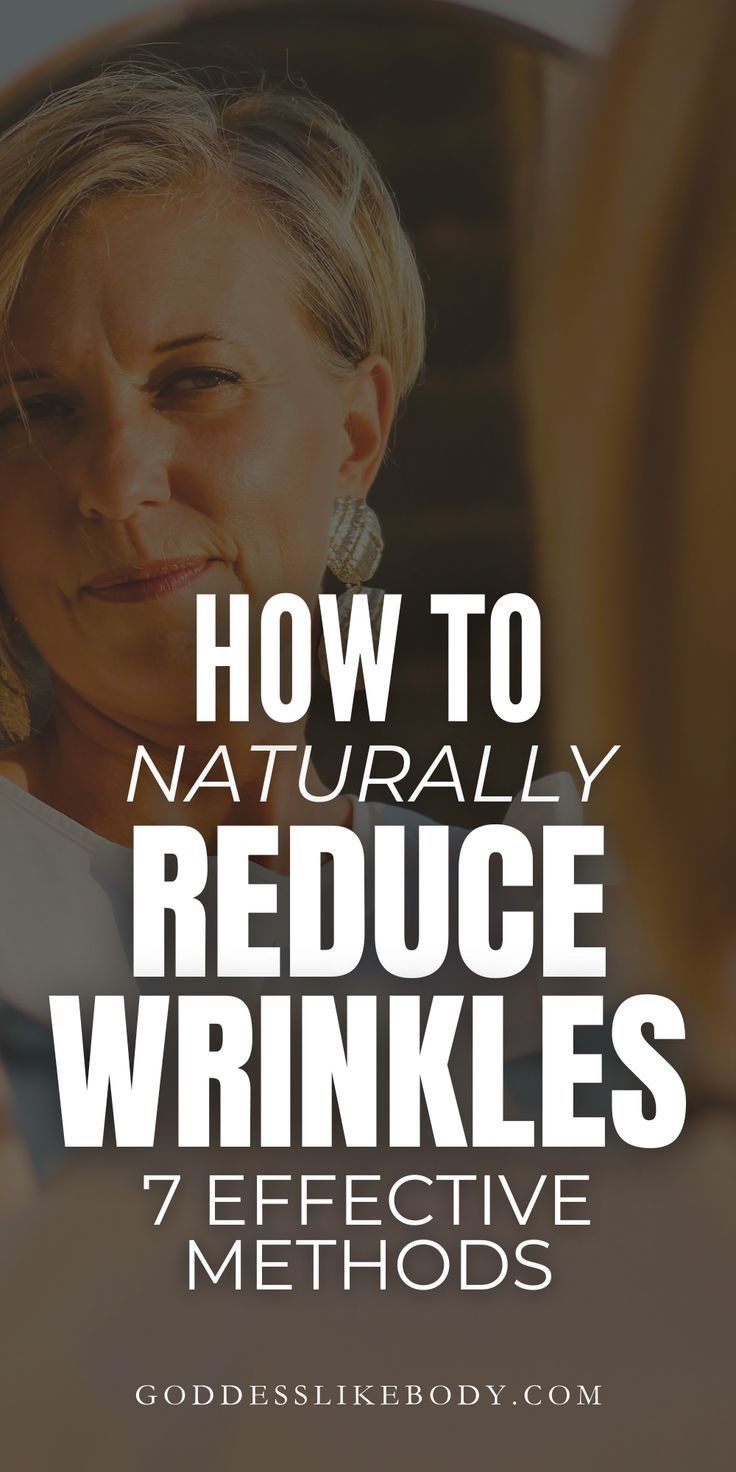



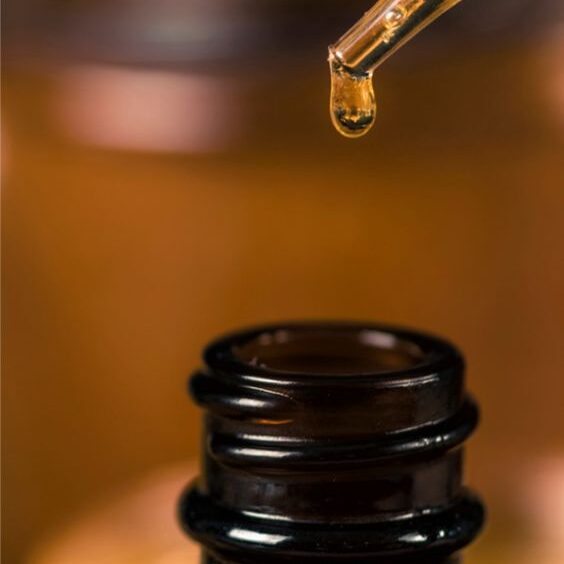


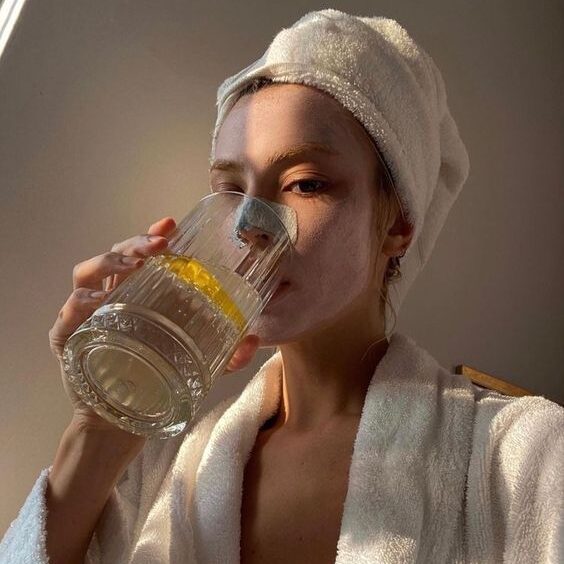
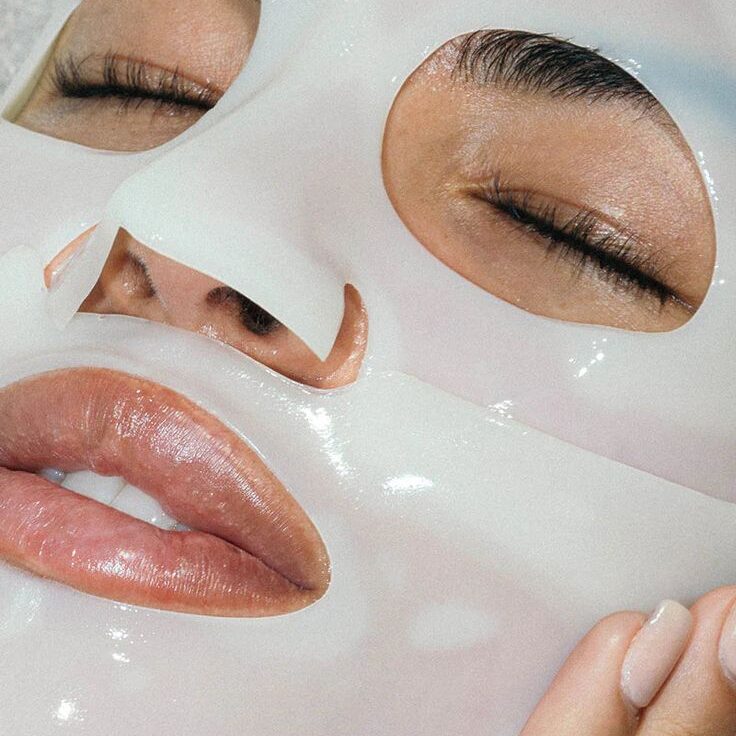




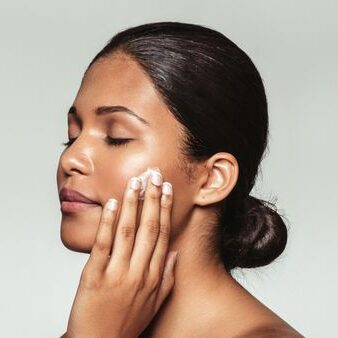



Leave a Reply
You must be logged in to post a comment.